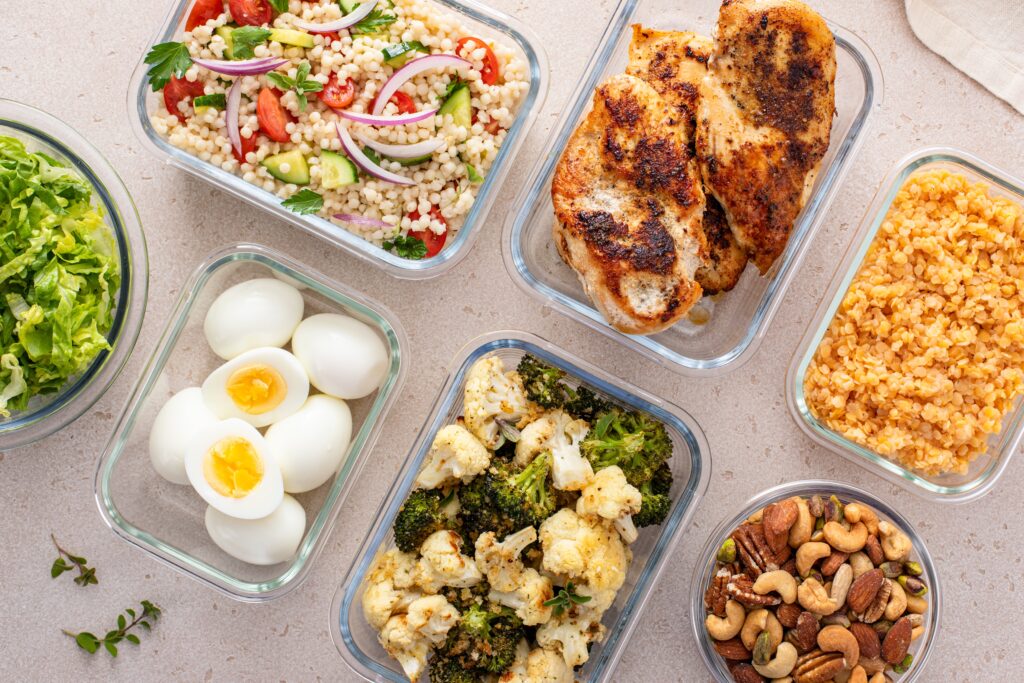Read the latest and greatest from our team
of incredible specialists.

Beach House Recovery Center » Blog » The Role of Nutrition in Supporting Recovery from Substance Abuse
Proper nutrition is a critical part of the addiction recovery process. By replenishing essential nutrients, it supports mental and physical health while fostering the resilience required for long-term recovery and overall wellness.

Over time, substance abuse can leave visible marks on the body, including weight loss, premature aging, dental decay, and a weakened immune system.
These physical signs often mirror internal damage to the heart, liver, lungs, and other vital organs. According to the National Institute on Drug Abuse, long-term drug use can lead to lung disease, heart disease, stroke, cancer, or mental health conditions.
Research published in the National Library of Medicine shows that people recovering from different types of addiction often have similar nutrient deficiencies, including low levels of B vitamins, vitamin C, vitamin D, zinc, and magnesium. These deficiencies can contribute to fatigue, illness, poor mood regulation, and slowed cognitive recovery.
At Beach House Center for Recovery, we believe nutritional support is integral to addiction recovery. That’s why we provide high-quality food options based on each patient’s unique dietary needs.
Proper nutrition is important for maintaining energy levels and overall health in addiction recovery. Essential vitamins and minerals repair vital organs and tissues damaged by substance misuse. Healthy daily nutrition also reduces drug cravings and supports stable blood sugar.
A healthy diet helps manage triggers caused by fatigue or blood sugar dips. It also supports long-term physical and mental resilience, encourages healthy eating habits, and replaces harmful routines.
Consistent, balanced meals support neurotransmitter production, combat inflammation linked to mood disorders, and help maintain emotional stability.
At Beach House Center for Recovery, our nutritionists work closely with our licensed clinicians to ensure your meals are filled with leafy green vegetables, lean proteins, fruits rich in vitamin C, and whole grains to support detox and healing.
Depending on your unique nutrition needs in recovery, supplements may support your healing. These include:
Meal planning after inpatient rehab is a way to ensure your body is getting the nutrients and minerals it needs to promote lasting wellness. It also helps take away the stress and anxiety that can accompany deciding what to eat every day.
When planning meals, be sure to include a variety of proteins, whole grains, fruits, vegetables, and healthy fats to support brain function, mood stability, and long-term recovery.
According to the American Addiction Centers, certain foods can help or hurt your recovery. They include:
Best diet options for overcoming addiction:
Avoid these foods:
Keeping your body hydrated helps flush harmful toxins from your body, aids in proper digestion, and supports overall physical recovery from substance use. It also supports cognitive function, mood stability, and blood sugar levels.
At Beach House Center for Recovery, we combine cognitive behavioral therapy (CBT) with holistic care and nutrition therapy to restore the body’s nutrient balance affected by substance use. Combining these therapies helps balance your physical, mental, and spiritual health, creating a solid foundation for strengthening overall health and wellness.
Holistic nutrition that combines whole foods, lifestyle changes, and mindful eating practices supports detox, immune function, and brain health. Our licensed clinicians combine balanced nutrition with a comprehensive rehab and recovery plan (e.g., counseling, exercise, and mindfulness practices) for each patient, supporting long-term sobriety and wellness.
We determine the unique recovery needs, nutritional deficiencies, and overall health of each patient and create a tailored treatment plan to ensure optimal healing and lasting recovery.
Following rehab, individuals have an increased risk of drug cravings and emotional eating. Why? A few examples may include lack of motivation, low energy, limited access to healthy food options, and disrupted routines.
These common barriers can be avoided by:
Follow these tips, tricks, and shortcuts to fuel your mind and body with the nutrients and minerals it needs for long-term recovery and wellness:
Contact Beach House Center for Recovery to learn more about the following supportive resources:
Yes. Nutrient deficiencies and unstable blood sugar levels can worsen mood swings and cravings, increasing the risk of relapse.
Consistent balanced nutrition in addiction recovery can improve mood, energy levels, and focus in just a few days.
At Beach House Center for Recovery, our diet plans are tailored to meet the unique needs of each patient. Our meals are rich in whole foods, lean meats, fruits, vegetables, and healthy fats to support lasting recovery.
Yes. Proper nutrition can reduce fatigue, stabilize mood, and support the body’s healing process during detox and beyond.
Yes. Beach House Center for Recovery understands that nutrition in rehab is essential. We offer nutrition counseling as part of our comprehensive treatment programming.
Whether you’re researching for yourself or a loved one, Beach House can help. We understand that this is a serious time in your life and that the treatment center you choose matters. We want you to feel comfortable and empowered to make the right decision for yourself, a friend, or a family member. This is why a counselor is waiting and available to answer your questions and help put your mind at ease regarding the next steps. Many of the staff at Beach House have walked in your shoes. If you feel you’re ready or want more information about how to help a loved one, we can help today. You can also learn why we are voted the #1 rehab for addiction treatment in Florida.
We accept most major insurance plans and can verify your benefits quickly and confidentially.
We’re committed to helping you access the care you need, our admissions counselors can guide you through your coverage options and available resources.





"*" indicates required fields